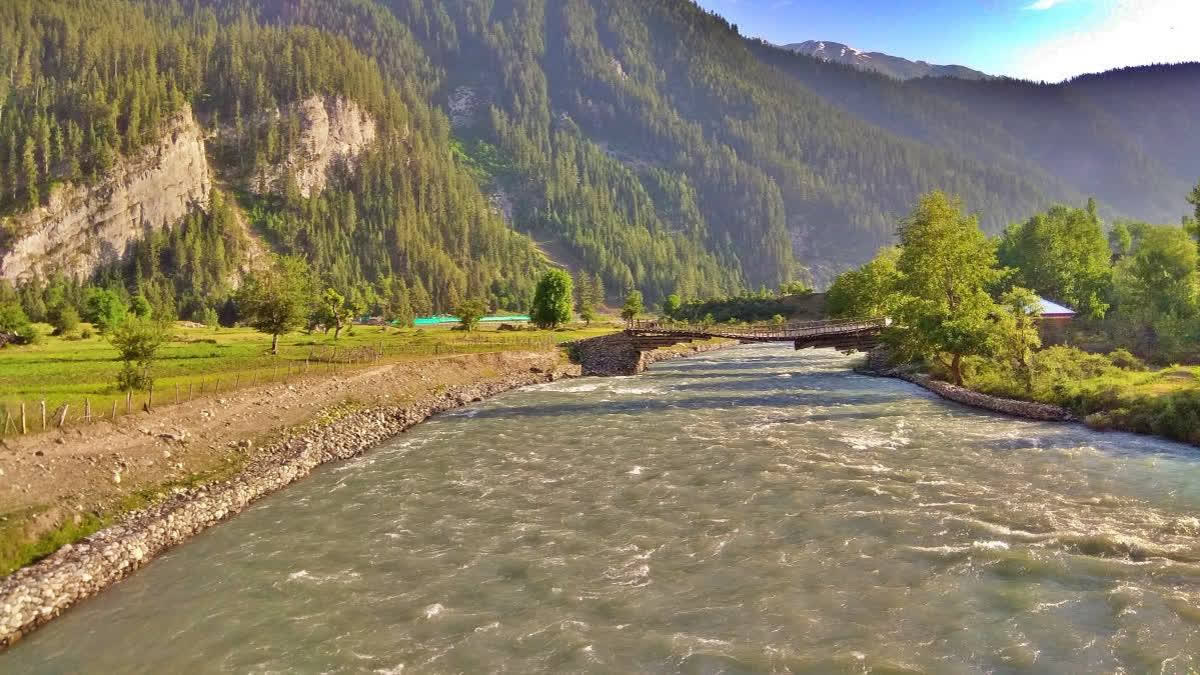New Delhi:Though Pakistan has expressed its willingness to renegotiate the Indus Waters Treaty (IWT) after being put on notice by India, it remains to be seen whether Islamabad will actually walk the talk in the days to come.
Pakistan voiced its willingness weeks after India gave a final ultimatum stating that there would be no further talks between the two sides until and unless the terms and conditions of the IWT are renegotiated given the fundamental changes in the geopolitical and environmental changes since the Treaty was signed in 1960.
“The Indus Waters Treaty is an important treaty that has served both Pakistan and India well over the last several decades,” Pakistan Foreign Office spokesperson Mumtaz Zahra Baloch said in response to a question during her weekly media briefing in Islamabad on Thursday. “We believe it is the gold standard of bilateral treaties on water sharing, and Pakistan is fully committed to its implementation. We expect India to also remain committed to the treaty.”
What is the IWT?
The Indus Waters Treaty is a water distribution treaty between India and Pakistan, arranged and negotiated by the World Bank, to use the water available in the Indus River and its tributaries. It was signed in Karachi in September 1960 by the then Indian Prime Minister Jawaharlal Nehru and the then Pakistani President Ayub Khan.
The Treaty gives control over the waters of the three “eastern rivers”-- the Beas, Ravi and Sutlej-- to India, while control over the waters of the three “western rivers” --the Indus, Chenab and Jhelum--is with Pakistan. The Treaty establishes a cooperative mechanism for exchanging information between the two countries regarding the use of the western rivers allocated to Pakistan and the eastern rivers allocated to India.
The preamble of the Treaty recognises the rights and obligations of each country in the optimum use of water from the Indus system in a spirit of goodwill, friendship and cooperation. The Treaty allows India to use the western river waters for limited irrigation use and unlimited non-consumptive use such as power generation, navigation, floating of property, and fish culture.
Under the Treaty, a Permanent Indus Commission was established. The Commission, which has a commissioner from each country, oversees the cooperative mechanism and ensures that the two countries meet annually (alternately in India and Pakistan) to discuss myriad issues emerging from the treaty.
The Treaty has largely been upheld for more than six decades, surviving several wars and periods of high tension between India and Pakistan. However, in recent years, multiple disputes over water usage, dam construction, and Treaty implementation have brought it into the spotlight once again.
What is the latest controversy over the Treaty?
Both countries held different positions when Pakistan raised objections regarding the technical design features of the Kishanganga (330MW) and Ratle (850 MW) hydroelectric power plants located on the tributaries of the Jhelum and the Chenab, respectively, designated as “western rivers”.
However, under certain articles of the IWT, India is permitted to construct hydroelectric power facilities on these rivers. Pakistan then approached the World Bank to facilitate the setting up of a court of arbitration to address the concerns related to these two projects. India requested the appointment of a neutral expert referent to Clause 2.1 of Article IX of the IWT on the settlement of differences and disputes of the treaty.
